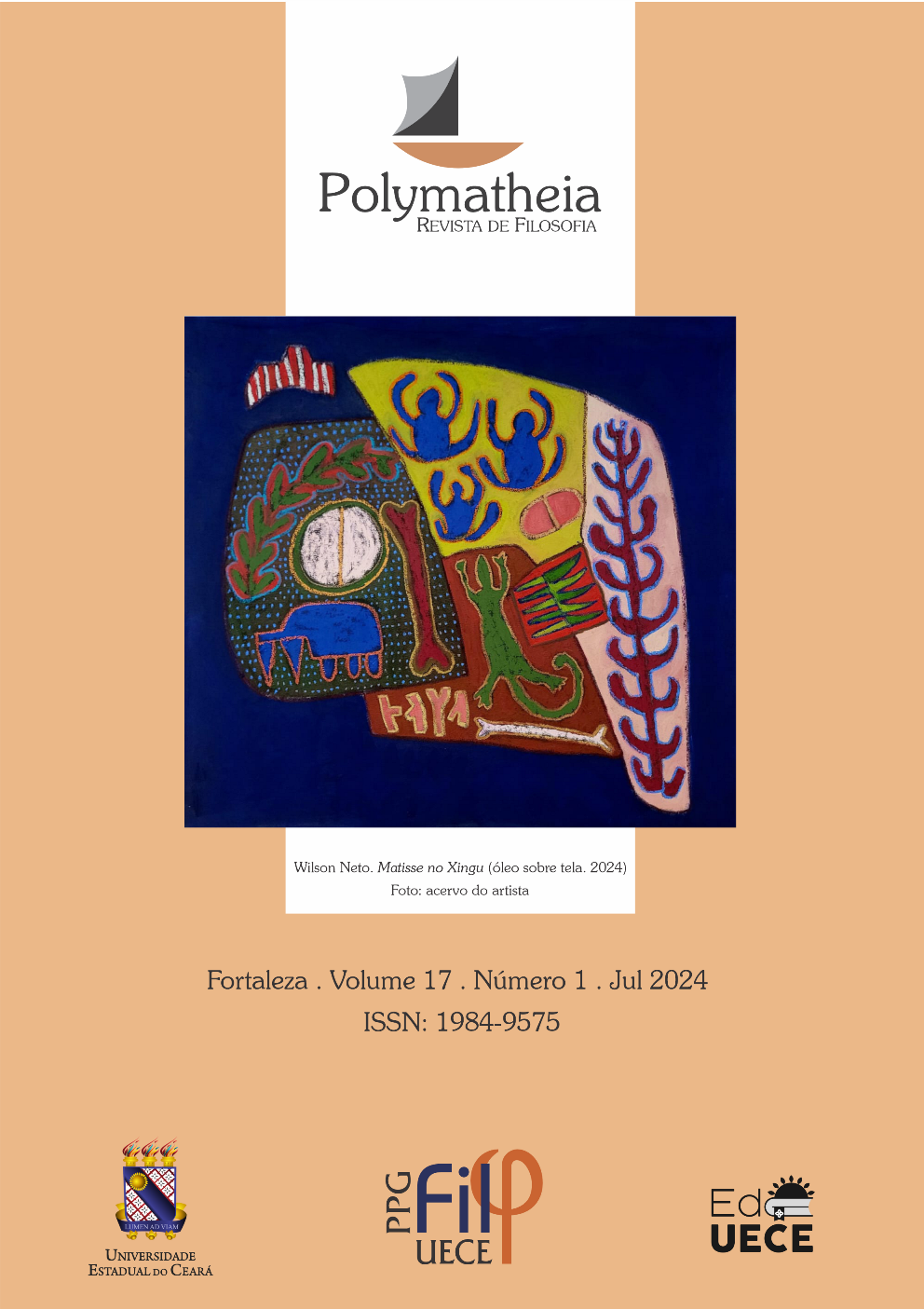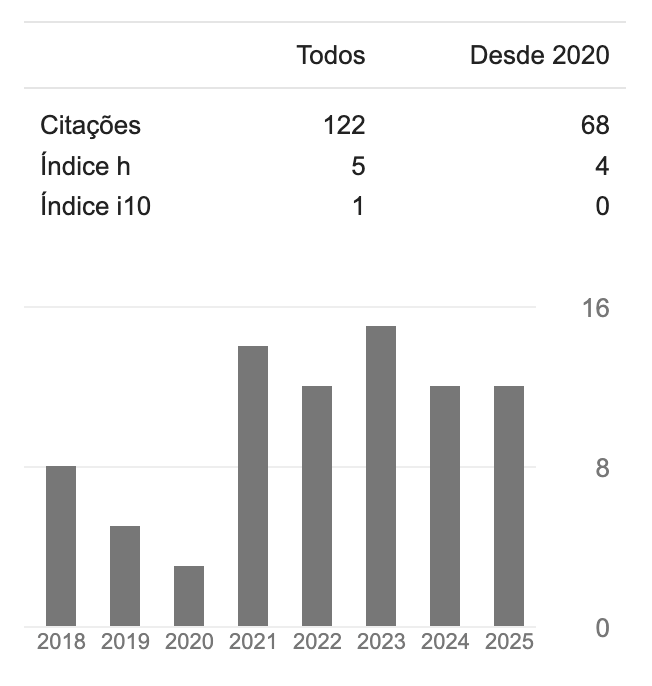VIOLÊNCIA REVOLUCIONÁRIA COMO EXPRESSÃO DE JUSTIÇA E INTERRUPÇÃO DO CURSO HISTÓRICO EM WALTER BENJAMIN
Palabras clave:
História, Justiça, Revoluçao, Teleologia, ViolênciaResumen
Pretende-se aqui mostrar que uma leitura atenta do texto Para a crítica da violência, escrito por Walter Benjamin em 1921, é de notável auxílio para a compreensão da revolução como ação interruptiva proposta pelo autor em suas teses “Sobre o conceito de história”, de 1940. Assim, são discutidos os fundamentos da categorização benjaminiana da violência e mostra-se como a violência revolucionária é compreendida não como tendo a justiça como meta, mas como sendo em si mesma expressão de justiça. Com isto, poder-se-á analisar em mais detalhes a oposição de Benjamin ao marxismo evolucionista e sua asserção de que a revolução constitui uma interrupção do processo histórico, e não seu resultado.
Descargas
Citas
BENJAMIN, Walter. Anmerkungen zu „Über den Begriff der Geschichte“. In: BENJAMIN, Walter. Gesammelte Schiriften I. Frankfurt am Main: Suhrkamp, 1974a [1940], pp. 1223-1267.
BENJAMIN, Walter. Über den Begriff der Geschichte. In: BENJAMIN, Walter. Gesammelte Schiriften I. Frankfurt am Main: Suhrkamp, 1974b [1940], pp. 691-704.
BENJAMIN, Walter. Zur Kritik der Gewalt. In: BENJAMIN, Walter. Gesammelte Schriften II. Frankfurt am Main: Suhrkamp, 1991a [1921], pp. 179-203.
BENJAMIN, Walter. Einbahnstraße. In: BENJAMIN, Walter. Gesammelte Schriften IV. Frankfurt am Main: Suhrkamp, 1991b [1928], pp. 83-148.
BENJAMIN, Walter. Der Sürrealismus: Die letzte Momentaufnahme der europäischen Intelligenz. In: BENJAMIN, Walter. Gesammelte Schriften II. Frankfurt am Main: Suhrkamp, 1991c [1928], pp. 295-310.
BENJAMIN, Walter. Das Leben der Studenten. In: BENJAMIN, Walter. Gesammelte Schriften II. Frankfurt am Main: Suhrkamp, 1991d [1915], pp. 75-87.
BENSAÏD, Daniel. Walter Benjamin : Sentinelle messianique. Paris: Plon, 1990.
BÍBLIA DE JERUSALÉM. São Paulo: Paulus, 1985.
BIRNBAUM, Antonia. Bonheur Justice – Walter Benjamin : le détour grec. Paris: Payot, 2008.
BOJANIĆ, Petar. Violence and Messianism: Jewish Philosophy and the Great Conflicts of the 20th Century. Tradução de Edward Djordjevic. Oxon e Nova Iorque: Routledge, 2018.
BUBER, Martin. Drei Reden über das Judentum. Frankfurt: Rütten & Loening, 1920a [1911].
BUBER, Martin. Die Legende des Baalschem. Frankfurt: Rütten & Loening, 1920b [1908].
BUBER, Martin. Der Mythos der Juden. In: VEREIN JÜDISCHER HOCHSCHÜLER BAR KOCHBA. Vom Judentum: Ein Sammelbuch Lípsia: Kurt Wolff Verlag, 1913, pp. 21-31.
BUTLER, Judith. Parting Ways: Jewishness and the Critique of Zionism. Nova Iorque: Columbia University Press, 2012.
CANTINHO, Maria João. Walter Benjamin e a história messiânica: contra a visão histórica do progresso. Philosophica, v. 37, 2011, pp. 177-195.
CHAVES, Ernani. Mito e política: notas sobre o conceito de destino no “jovem” Benjamin. Trans/Form/Ação, v. 17, 1994, pp. 15-30.
COHEN, Hermann. Die Religion der Vernunft aus den Quellen des Judentums. Lípsia: Gustav Fock G.m.b.H., 1919.
DE WILDE, Marc. Meeting Opposites: The Political Theologies of Walter Benjamin and Carl Schmitt. Philosophy & Rhetoric, v. 44, n. 4, 2011, pp. 363-381.
DERRIDA, Jacques. Force of Law: The “Mystical Foundation of Authority”. In: CARLSON, David Grey; CORNELL, Drucilla; ROSENFELD, Michel (eds.). Deconstruction and the Possibility of Justice (pp. 3-67). Londres e Nova Iorque: Routledge, 1992.
DEUBER-MANKOWSKY, Astrid. Niobe and Korah, Different Orders of Time: A Commentary on Paragraphs 14-17 of Walter Benjamin’s “Toward the Critique of Violence”. Critical Times, v. 2, n. 2, 2019, pp. 295-305.
FRANCE, Anatole. Le lys rouge. Paris: Calmann-Lévy, 1906 [1894].
GREENBERG, Udi E. Orthodox violence: “Critique of Violence” and Walter Benjamin’s political theology. History of European Ideas, v. 34, n. 3, 2007, pp. 324-333.
HILLER, Kurt. Anti-Kain: Ein Nachwort zu den Vorhergehenden. In: ______ (ed.). Das Ziel: Drittes der Jahrbücher für geistige Politik. Herausgegeben von Kurt Hiller. Erster Halbband. Lípsia: Kurt Wolff Verlag, 1919, pp. 24-32.
HONNETH, Axel. »Zur Kritik der Gewalt«. Em: LINDNER, Buckhardt (org.). Benjamin Handbuch: Leben – Werk – Wirkung (pp. 193-210). Estugarda e Weimar: Verlag J.B. Metzler, 2011, pp. 193-210.
LÖWY, Michael. Walter Benjamin: aviso de incêndio. Uma leitura das teses “Sobre o conceito de história”. Tradução de Wanda Nogueira Caldeira Brant. São Paulo: Boitempo, 2005.
MÜLLER, Jan-Werner. Myth, law and order: Schmitt and Benjamin read reflections on violence. History of European Ideas, v. 29, 2003, pp. 459-473.
ROSS, Alison. The Distinction between Mythic and Divine Violence: Walter Benjamin’s “Critique of Violence” from the Perspective of “Goethe’s Elective Affinities”. New German Critique, v. 41, n. 1, 2014, pp. 93-120.
SCHMITT, Carl. Politische Theologie: Vier Kapitel zur Lehre von der Souveränität. Munique e Lípsia: Verlag von Duncker & Humboldt, 1934 [1922].
SCHOLEM, Gershom. Zum Verständnis der messianischen Idee im Judentum. In: FRÖBE-KAPTEYN, Olga (ed.). Die Erneuerung des Menschen. Zurique: Rhein-Verlag, 1960, pp. 193-239.
SCHOLEM, Gershom. Walter Benjamin – Die Geschichte einer Freundschaft. Frankfurt: Suhrkamp, 1997 [1975].
TAUBES, Jacob. Ad Carl Schmitt: Gegenstrebige Fügung. Berlim: Merve Verlag, 1987.
Descargas
Publicado
Cómo citar
Número
Sección
Licencia
Derechos de autor 2024 Leonardo Uderman

Esta obra está bajo una licencia internacional Creative Commons Atribución 4.0.











